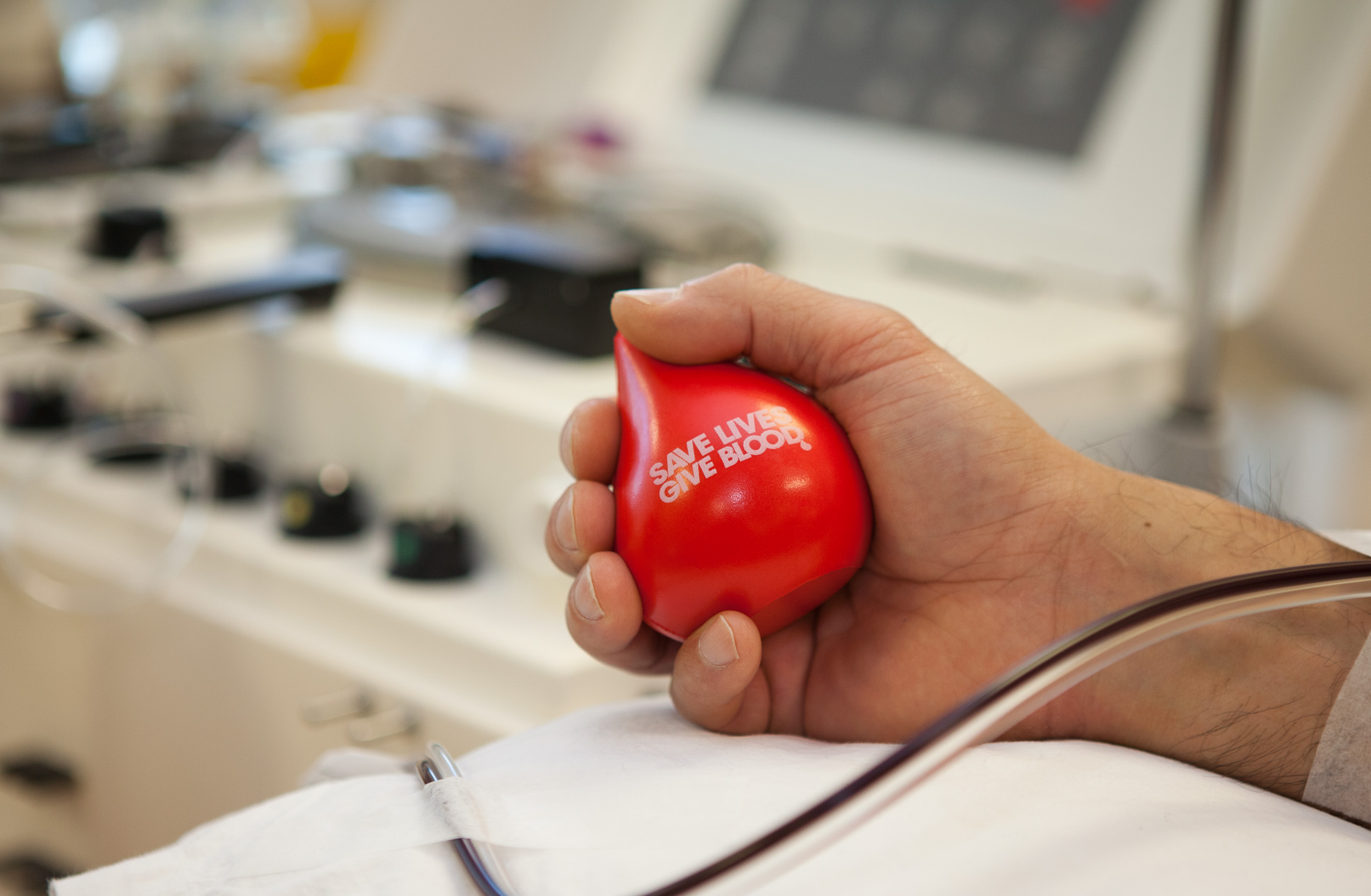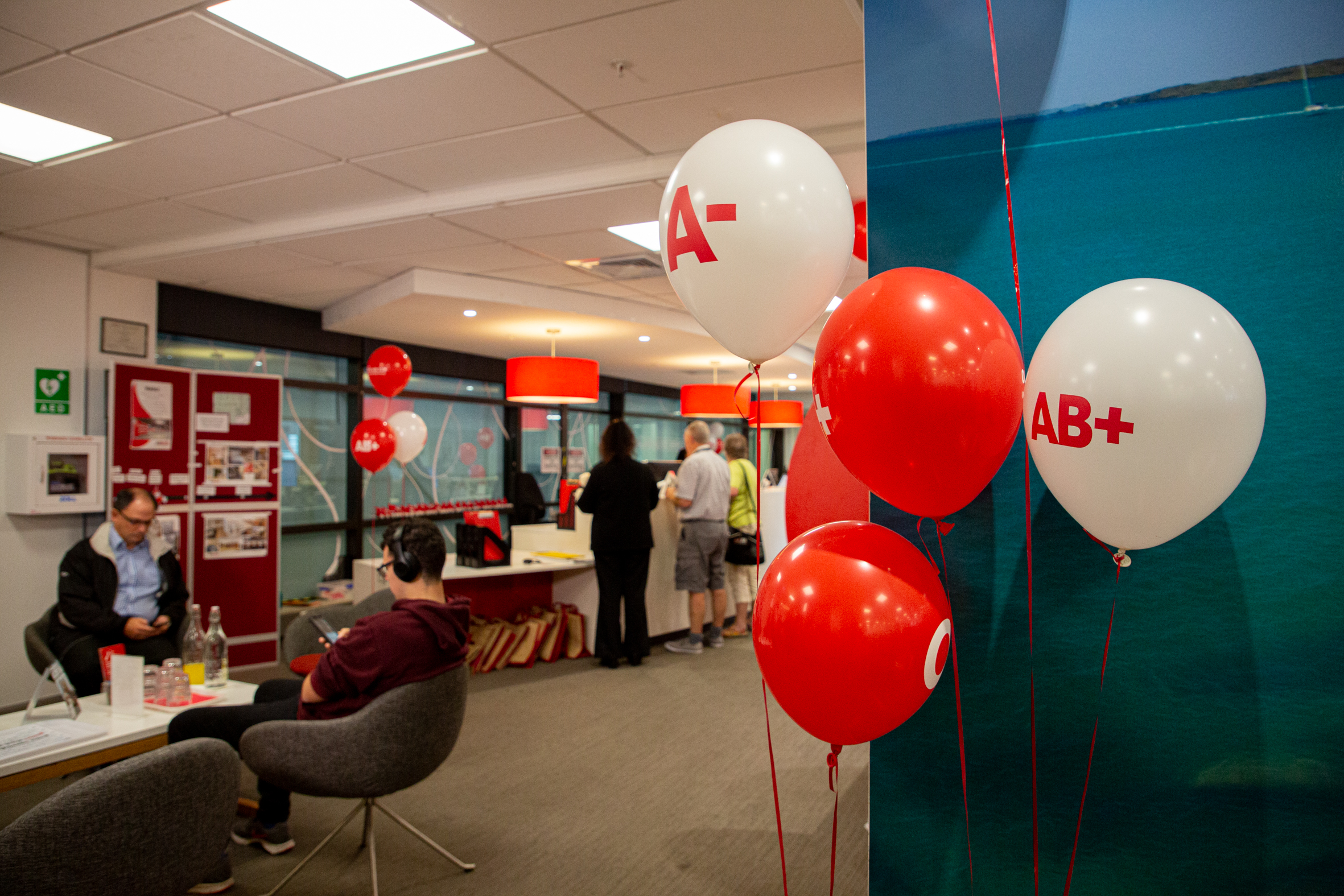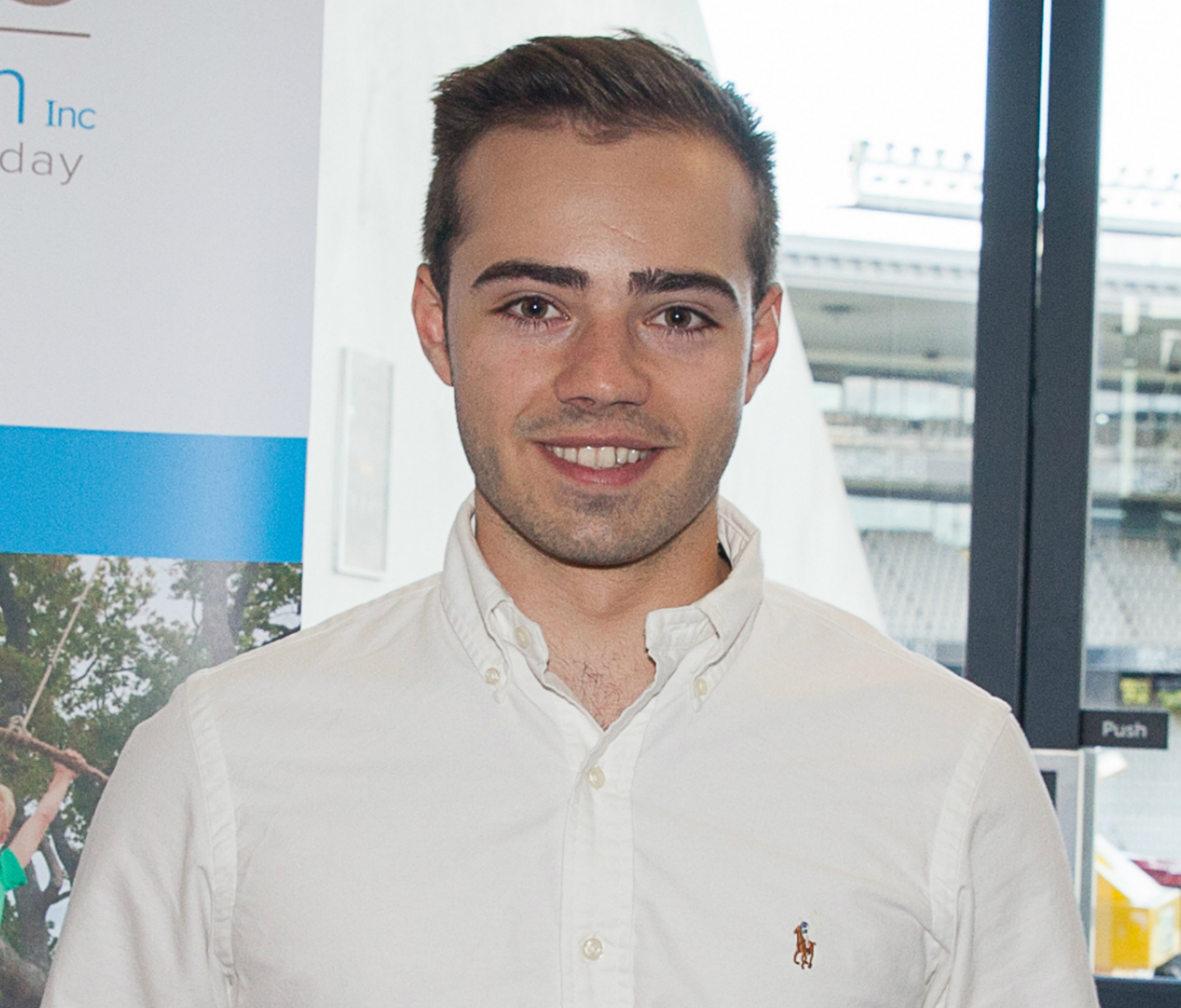News
A unique perspective: both a donor and recipient
Cezanne signed up as a donor with New Zealand Blood Service (NZBS) when she was just 18 years old. She remembers volunteering at her high school’s blood drives and was, she says, “hooked from the get-go”. Little did she know, years later, her donations would directly assist in the production of a very special blood product.
Cezanne’s journey as a donor started with whole blood, then she became a plasma donor – where NZBS collects just the liquid portion of blood in which red and white blood cells and platelets are suspended.
Cezanne continued as a plasma donor for several years, with time off in between as she marked the birth of her first child, and the stand-down period following her pregnancy. It was when Cezanne fell pregnant for a second time that she experienced first-hand just how life-saving blood donation can be.
While carrying her second child, Cezanne began producing a blood group antibody called ‘anti-D’. Cezanne belongs to the blood group “D negative” and her anti-D antibodies were crossing the placenta and attacking her unborn son’s red blood cells. Because Cezanne produced a lot of anti-D, it risked making her baby seriously anaemic (a potentially life-threatening condition in unborn children). While he didn’t need “intrauterine transfusions” – blood transfusions administered to babies while still inside the womb, he was admitted in the hospital for an additional 3 weeks after he was born and received three transfusions in his first few weeks of life. Weekly blood tests were performed for 6 weeks to keep an eye on him – luckily no additional transfusions were needed.
During Cezanne’s third pregnancy, this time a baby girl, her production of ‘anti-D’ was at an all-time high – this meant her unborn daughter’s red blood cells were being fiercely attacked. In order to save her life, Cezanne’s baby girl required seven intrauterine transfusions – as well as another four blood transfusions once she was born and as with her older brother, a weekly blood test for 6 weeks to make sure no additional transfusions would be needed.
Despite going through such a traumatic ordeal, both Cezanne and her babies are happy and healthy, both at bouncy toddlers’ ages and are cherished additions to the family.
There is also a silver lining to the dark cloud of distress that Cezanne and her babies endured. As a result of the anti-D which she started producing during her second pregnancy, Cezanne continues to make a high level of anti-D, even now after her pregnancies. She’s since returned to NZBS as a plasma donor and her donations can now be used to help make a very special product known as ‘Anti D Immunoglobulin’ – a concentrate of anti D antibodies that is used to prevent RhD negative women’s immune systems from producing anti-D after childbirth, or if bleeding occurs during a pregnancy. This concentrate can only be sourced from donors with the specific antibody that Cezanne now has, making her a very valuable donor indeed. The Anti-D concentrate is more than 90% effective for protecting women from making anti-D which might attack a future baby during a pregnancy.
Every blood donor and recipient has a special story to tell – and Cezanne’s is no different. Her decision to donate plasma again after her difficult pregnancies was one she says was very easy to make, and she hopes that it will encourage others to consider donating blood.
“I can tell you first-hand just how much difference a blood donor can make”, she says. “My babies wouldn’t be here without the donors who provided blood for their transfusions. As a recipient, I’m forever grateful. As a donor, it’s incredibly rewarding to give, and my personal experience keeps me going back”.
To find out more about how you can become a blood donor, click here or call 0800 GIVE BLOOD.
Published: 2018-02-16



